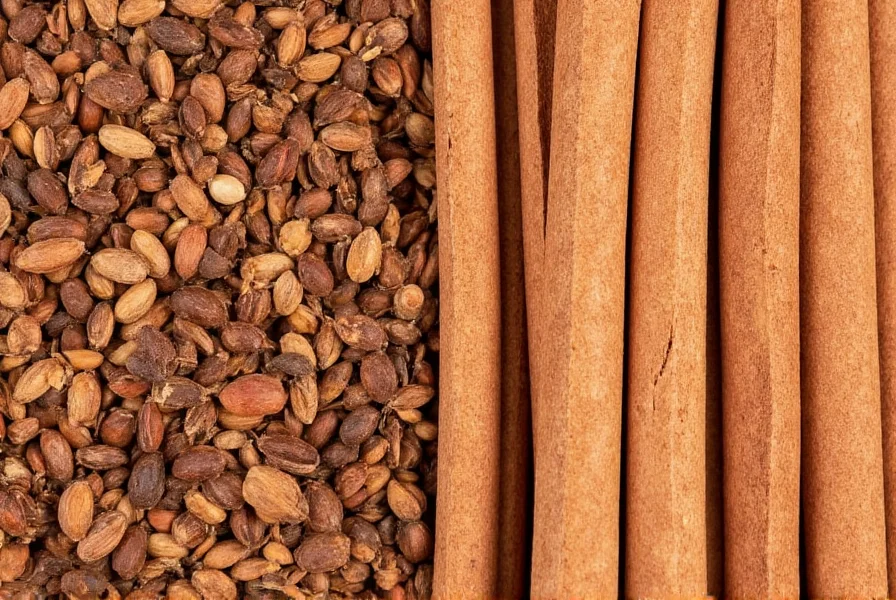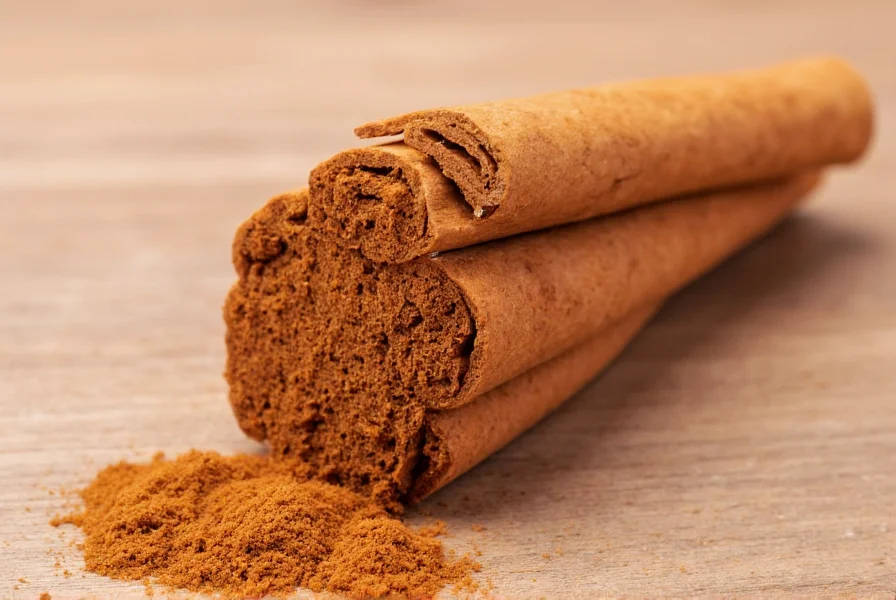Cinnamon isn't just a warming spice that makes your morning oatmeal delicious—it's a powerhouse of health benefits backed by growing scientific evidence. This ancient spice, harvested from the inner bark of Cinnamomum trees, has been used for centuries in traditional medicine systems across Asia and the Middle East. Modern research is now validating many of these traditional uses while uncovering new applications for this versatile spice.
Understanding Cinnamon Varieties
Before exploring what cinnamon is good for, it's important to know there are two primary types you'll encounter:
| Type | Characteristics | Best For |
|---|---|---|
| Ceylon Cinnamon | Milder flavor, "true" cinnamon, lower coumarin content | Daily consumption, sensitive individuals |
| Cassia Cinnamon | Stronger flavor, more common, higher coumarin content | Occasional use, baking, robust recipes |
The distinction matters significantly when considering what the spice cinnamon good for in terms of regular consumption, as coumarin—a natural compound in higher concentrations in Cassia—can cause liver issues in sensitive individuals when consumed in large amounts over time.

Science-Backed Health Benefits of Cinnamon
Blood Sugar Regulation
One of the most well-researched benefits of cinnamon relates to blood sugar control. Multiple studies, including a comprehensive review published in the Journal of the Academy of Nutrition and Dietetics, demonstrate that cinnamon can improve insulin sensitivity and lower fasting blood glucose levels. Research indicates that consuming 1-6 grams of cinnamon daily (about ½ to 2 teaspoons) may reduce blood sugar by 10-29% in people with type 2 diabetes.
When exploring what is the spice cinnamon good for regarding metabolic health, it appears to work through several mechanisms:
- Slowing carbohydrate breakdown in the digestive tract
- Improving insulin sensitivity
- Mimicking insulin's effects on cells
- Reducing fasting blood glucose levels by up to 29% according to some studies
Powerful Antioxidant Properties
Cinnamon ranks #1 among 35 popular spices in antioxidant activity according to research published in the Journal of Agricultural and Food Chemistry. The spice contains over 41 protective compounds, with polyphenols being particularly abundant. These antioxidants combat oxidative stress and may reduce the risk of chronic diseases.
Anti-Inflammatory Effects
Chronic inflammation contributes to numerous health conditions including heart disease, cancer, and autoimmune disorders. Cinnamon contains cinnamaldehyde and other compounds that demonstrate significant anti-inflammatory properties in laboratory studies. Research suggests these compounds may inhibit inflammatory responses at the cellular level.
Heart Health Support
When examining what cinnamon spice is good for cardiovascular health, studies show it may help reduce several risk factors:
- Lowering LDL ("bad") cholesterol levels
- Reducing triglycerides
- Maintaining healthy HDL ("good") cholesterol
- Potentially lowering blood pressure through improved vessel function
A meta-analysis in Nutrition Research Reviews concluded that cinnamon supplementation significantly reduced total cholesterol, LDL cholesterol, and triglycerides in study participants.
Culinary Applications: What Cinnamon Is Good For in the Kitchen
Beyond its health properties, cinnamon serves as an incredibly versatile culinary ingredient. Understanding what the spice cinnamon good for in cooking reveals its remarkable flexibility:
- Natural sweetener alternative—enhances sweetness perception without added sugar
- Flavor enhancer—complements both sweet and savory dishes
- Preservative qualities—its antimicrobial properties can extend food freshness
- Warming spice—adds depth to winter dishes and beverages

Practical Ways to Incorporate Cinnamon Daily
Discovering what is the spice cinnamon good for becomes most valuable when you implement it in your daily routine:
- Add ½ teaspoon to morning coffee or tea
- Sprinkle on oatmeal, yogurt, or fruit
- Use in homemade spice blends for roasted vegetables
- Include in smoothies for added flavor and health benefits
- Try in savory dishes like Moroccan tagines or Indian curries
Safety Considerations and Recommended Intake
While cinnamon offers numerous benefits, understanding what cinnamon is good for must include awareness of appropriate consumption levels. The European Food Safety Authority recommends limiting coumarin intake to 0.1 mg per kg of body weight daily.
For most adults, this translates to:
- Cassia cinnamon: No more than 1 teaspoon (2-3 grams) daily
- Ceylon cinnamon: Up to 1-2 teaspoons (3-6 grams) daily
Certain populations should exercise caution:
- People with liver conditions
- Those taking diabetes medications (risk of hypoglycemia)
- Pregnant women (consult healthcare provider)
- Individuals on blood thinners
Choosing Quality Cinnamon
When selecting cinnamon to maximize what the spice cinnamon good for your health, consider these factors:
- Source transparency—reputable brands disclose origin
- Type specification—look for "Ceylon" if consuming regularly
- Freshness—whole sticks retain potency longer than ground
- Storage—keep in airtight container away from light and heat
Ground cinnamon loses potency faster than sticks, so buy smaller quantities and store properly to maintain maximum benefits. Properly stored, cinnamon sticks can retain quality for 1-2 years, while ground cinnamon remains potent for 6-12 months.
Conclusion: Maximizing Cinnamon's Benefits
Understanding what is the spice cinnamon good for reveals a remarkable combination of culinary versatility and science-supported health benefits. From blood sugar regulation to powerful antioxidant protection, this ancient spice offers modern health solutions backed by growing research. By choosing the right type, using appropriate amounts, and incorporating it consistently into your diet, you can harness cinnamon's full potential as both a flavor enhancer and wellness promoter.
How much cinnamon should I take daily for health benefits?
For health benefits, research suggests ½ to 2 teaspoons (1-6 grams) daily. Those using Cassia cinnamon should limit to ½-1 teaspoon due to higher coumarin content, while Ceylon cinnamon allows up to 1-2 teaspoons daily. Always consult your healthcare provider before using cinnamon therapeutically.
Is Ceylon cinnamon better than Cassia cinnamon?
Ceylon cinnamon ("true" cinnamon) contains significantly less coumarin than Cassia, making it safer for regular consumption. While Cassia has stronger flavor and is more common, Ceylon is preferable for daily use, especially for those with liver concerns or taking medications. Both types offer similar health benefits when consumed in appropriate amounts.
Can cinnamon help lower blood sugar naturally?
Yes, multiple studies show cinnamon can improve insulin sensitivity and lower fasting blood glucose levels. Research indicates 1-6 grams daily may reduce blood sugar by 10-29% in people with type 2 diabetes. However, it should complement—not replace—standard diabetes treatments, and those on medication should monitor blood sugar closely as cinnamon may enhance medication effects.
What are the potential side effects of consuming cinnamon?
Possible side effects include mouth sores, lowered blood sugar (hypoglycemia) when combined with diabetes medications, and liver issues from excessive Cassia cinnamon consumption due to coumarin. Allergic reactions are rare but possible. Most people tolerate moderate amounts well, but those with liver conditions or on certain medications should consult a healthcare provider before regular use.
How can I incorporate cinnamon into my daily diet effectively?
Add ½ teaspoon to morning coffee or tea, sprinkle on oatmeal or yogurt, include in smoothies, use in homemade spice blends for roasted vegetables, or try in savory dishes like curries. For maximum benefit, pair cinnamon with black pepper to enhance absorption of its active compounds, and choose Ceylon variety for daily consumption to minimize coumarin exposure.











 浙公网安备
33010002000092号
浙公网安备
33010002000092号 浙B2-20120091-4
浙B2-20120091-4